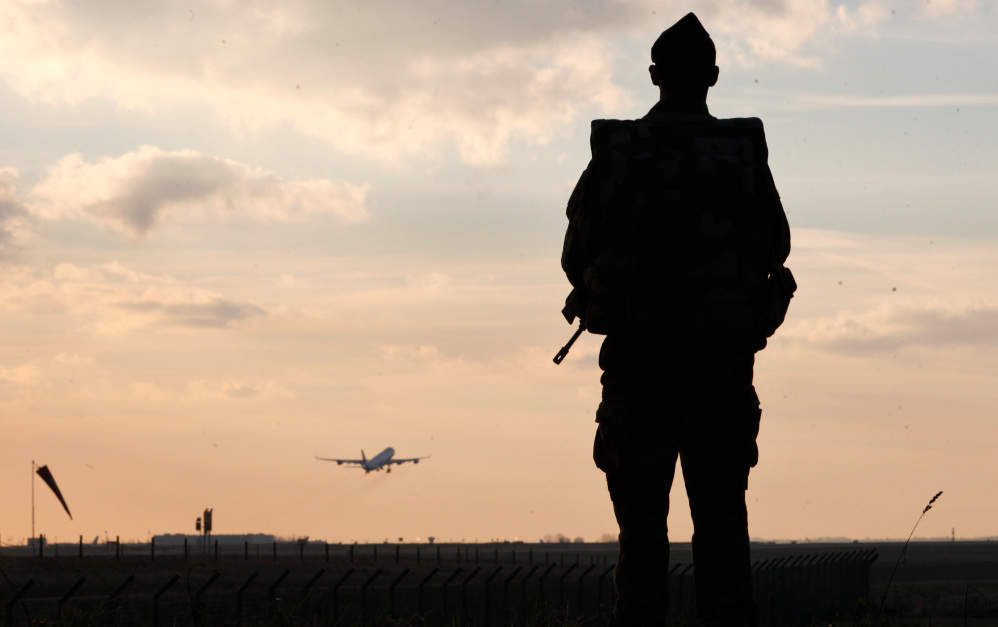PARIS — On the streets of Gennevilliers, a working-class suburb north of Paris, residents said there was little indication that a militant bent on warfare on French soil was living in their midst.
“He came once a week to pray and minded his own business,” Ali Harez, secretary at the Ennour mosque, said of Cherif Kouachi, who lived in a rented flat a few blocks away. “I can understand how the police didn’t know either.”
In the last year or so, according to government and news reports in France, authorities dropped surveillance on Kouachi and his older brother Said, concluding that the siblings posed no imminent threat, despite past associations with militant Islamists and an intelligence report that one brother had traveled to Yemen to train with an al-Qaida affiliate.
On Friday, law enforcement authorities in France, Belgium and Germany trumpeted the arrests of more than two dozen people in a sweeping crackdown on suspected militant rings, none necessarily linked. But for at least some in France, it felt as though the action had come too late
In retrospect, the decision to end surveillance of the Kouachis was disastrous: The brothers carried out the well-planned assault that killed 12 people at the Paris offices of Charlie Hebdo, a satirical magazine long in militant crosshairs because of its mocking of Islam. Their apparent accomplice, Amedy Coulibaly, killed a police officer and four people at a kosher grocery.
The three assailants were killed Jan. 9 in shootouts with police.
Authorities and acquaintances say the three men appear to have successfully concealed their intentions despite well-known past connections to militant networks.
OFF THE RADAR
Coulibaly also went off the official radar soon after his release from custody last year for his part in a plot to spring a jailed extremist convicted in connection with a series of train bombings in 1995.
Shaken French authorities have been at a loss to explain what seems to have been a massive intelligence breakdown.
A nation with a sophisticated surveillance infrastructure, decades of experience investigating Islamic extremists and a vast network of informants somehow missed a homegrown plot by French-born men of immigrant ancestries. French prisons appear to have been an extremist incubation ground for at least two of the men, prompting calls to isolate known militants who are behind bars.
French Prime Minister Manuel Valls acknowledged that there had been “clear failings” in intelligence and vowed an overhaul of anti-terrorism procedures.
“We must respond to this exceptional situation with exceptional measures,” Valls told the National Assembly this week.
There is talk of a French version of the United States’ Patriot Act, enacted after the Sept. 11, 2001, attacks. The measure has been hailed by some prosecutors as an effective anti-terrorism tool, but has drawn the ire of civil libertarians. There is deep resistance in France to any move to expand police searches, surveillance, large-scale official data gathering and other potentially intrusive actions.
“I think what is going on in Paris right now is a deep introspection about how do they deal with the constraints,” said Andrew Liepman, a senior policy analyst at Rand Corp. and former principal deputy director of the National Counterterrorism Center. “How do they give their domestic intelligence and law enforcement communities a bit more leeway?”
Since last week’s attacks, the French have bolstered police presence on the streets, deployed thousands of troops and conducted a series of high-profile anti-terrorism sweeps in a bid to both allay public concern and wipe out remnants of the cell whose acts stunned the continent.
‘A PROBLEM OF RESOURCES’
But experts say the now much-criticized French move to end surveillance on the Kouachi brothers appears to have been standard operating procedure, given the suspects’ recent apparent turn toward moderation and the many demands facing beleaguered French investigators. Experts say the system, from street agents to analysts to magistrates, is inundated.
“The problem was essentially a problem of resources,” said Jean-Charles Brisard, chairman of the Paris-based Center for Analysis of Terrorism. “Indeed, today our services globally are totally overwhelmed.”
France, home to Europe’s largest Muslim population, was already facing myriad militant threats from both potential “lone-wolf” attackers and organized cells before the outbreak of the Syrian war brought calls for action across the Middle East, Europe and elsewhere. Hundreds of French nationals have left to take up arms in Syria, spurring the creation of new radicalized networks and posing a severe potential security threat. Keeping track of it all is a massive undertaking. Placing a person under around-the-clock surveillance may take 20 to 30 agents, he said.
Send questions/comments to the editors.



Comments are no longer available on this story